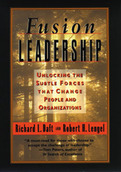BK Blog Post
How Berrett-Koehler Began
 Posted by
Steve Piersanti,
Founder & Senior Editor,
Berrett-Koehler Publishers Inc.
Posted by
Steve Piersanti,
Founder & Senior Editor,
Berrett-Koehler Publishers Inc.
Steven Piersanti is founder of and senior editor at Berrett-Koehler Publishers, Inc., a leading independent publisher of progressive books on current affairs, personal growth, and business and management.
How Berrett-Koehler Began
By Steve Piersanti
I began my publishing career in 1977 as a promotional copywriter at Jossey-Bass, Inc. Publishers, in San Francisco. I subsequently held positions of marketing director, editor, editorial director, and executive vice president of Jossey-Bass. In 1989, when Jossey-Bass was acquired by media baron Robert Maxwell and made a division of Macmillan Publishing, which Maxwell had also recently acquired, I was promoted to be president and CEO of Jossey-Bass.
In April 1991 I got a call from my Macmillan boss in New York City telling me that there was a corporate-wide workforce reduction going on and that all units within Macmillan were required to reduce their headcount by ten percent. At that point Jossey-Bass had sixty-eight employees, and my boss told me that we would be required to reduce our head count to sixty. For some of the New York Macmillan units, the reduction wasn’t such a big deal because they had so much turnover that they could hit their headcount target if they just didn’t fill open positions.
At Jossey-Bass, however, we had almost no turnover, so we would have had to lay off eight people. There was no rhyme or reason for this. Our company had just finished a record-breaking year in which sales went up twenty-two percent and profits increased forty-six percent. In the Macmillan annual budgeting process, we had already been approved to hire eight people to support our growth. But now we were being told, “No, you have to lay off eight people.” This was especially egregious for us because Jossey-Bass’s success was based on the culture we had built of close, continuing relationships among employees, managers, authors, suppliers, and service providers.
I refused to carry out the layoffs and the Jossey-Bass management team supported me. When I told Macmillan our decision, they sent to San Francisco my boss and the vice president of human resources to meet with us to work out who we were going to cut. We sent them back empty handed.
After a few more weeks of standoff, I got summoned to New York City. I met on Friday, May 24, 1991, in the Waldorf Astoria Hotel with Robert Maxwell (who occupied an entire floor of the hotel) along with the president of Macmillan Inc. and the president of Macmillan Publishing—representing the top three layers of the hierarchy. (For some reason they skipped my boss.) They gave me repeated ultimatums to carry out this workforce reduction or resign or be fired. They made no argument that the workforce reduction made any sense for the business success of Jossey-Bass Publishers. They simply couldn’t have this little California unit defying the corporate order.
I politely said that I could not go along—it was not the right thing to do, and it would not be good for the company. I flew back to California, and they arranged for my boss and the Macmillan vice president of human resources to meet with me again in the Jossey-Bass office the following Wednesday, May 29. I thought maybe they would try to work out some kind of compromise. Instead, when whey showed up at 2:00 pm, they immediately fired me and instructed me to clean my personal belongings out of my desk and go home, which I did.
Fortunately, the grapevine worked quickly. The very next day I started getting phone calls at my home from Jossey-Bass authors, suppliers, and service providers who had heard about what happened—from upset Jossey-Bass staff—and who were unhappy about it. Many of these authors, suppliers, and service providers encouraged me to start a new publishing company and offered to support the company in different ways. Authors for whom I had served as their editor said they would send book projects to me and encourage their colleagues to do likewise; and then they followed through and did just that. A group of suppliers who had known me and worked with me at Jossey-Bass got together, encouraged me to start a publishing company, told me that “we would be willing to support you 110%,” and offered generous financial terms and extensive credit; this group included a book printing company, book warehousing and shipping service, marketing materials printing company, and direct mail marketing company, so they provided much of infrastructure that was needed at that time to start a publishing company. A few weeks later, another book printing company with whom Jossey-Bass had worked offered the same terms. And for the next twenty years, until their ownership changed, these two printing companies printed nearly all of Berrett-Koehler’s books.
I began creating detailed plans for launching a new publishing company. But the momentum for starting Berrett-Koehler came much more from answering my phone and working with all the energy coming to me than from the plans. That is the real story of how Berrett-Koehler got started: this outpouring of support from authors, suppliers, service providers, and other friends.
By January, 1992, when Berrett-Koehler Publishers, Inc. was formally incorporated, I had already signed twenty publication agreements, including agreements for many titles that subsequently became Berrett-Koehler bestsellers, such as Leadership and the New Science, Getting Things Done When You Are Not in Charge, Future Search, and Cultural Diversity in Organizations. And in early 1992 we moved from my being the only employee to hiring our other initial staff members, including Pat Anderson, Valerie McQuat, Kristen Scheel (now Frantz), Stephen Zink, and Valerie Barth.






